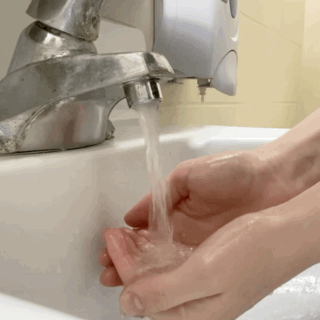State and local leaders are making decisions every day about the COVID-19 pandemic that are met with both praise and criticism. WNIJ’s Peter Medlin has the first part of our series “The Hot Seat” talking to leaders, like the Winnebago County Sheriff, about the process behind those big decisions.
Recently, Illinois Gov. J.B. Pritzker unveiled an executive order to keep businesses from opening before Illinois reached the next phase of reopening. Business owners could be charged with a misdemeanor for violating the stay-at-home order.
Within hours of the announcement, reaction flooded in from residents, businesses and lawmakers. Some applauded the decision as a way to ensure safety for essential workers. Others said the order was a step too far.
Gary Caruana is the Winnebago County Sheriff. He was one of several sheriffs -- along with the Illinois Sheriff’s Association -- to denounce the decision and say he wouldn’t enforce it.
Caruana also criticized the governor for saying he may withhold funding for communities that don’t enforce the order.
“This is not a law,” he said. “An executive order sounds powerful, but when you really break it down and drill down on it, it's a policy.”
Caruana says it’s his job to enforce laws and the constitutions of Illinois and the United States. And there’s a difference between that and the governor’s policy.
By May 20, Governor Pritzker withdrew his executive order.
Debate about COVID-19 response in America often splits down party lines. Caruana is a Republican but stressed that his decision on the executive order wasn’t political.
“I don't care what side of the fence the governor is on,” said Caruana.
But Caruana says it can be frustrating to see the Facebook or Twitter responses to his law enforcement decisions.
“Sometimes people get mad and they get emotional and then, bam, we're on social media and they're going ‘I don't support this or I don't support you and shame on you or whatever.’ And it's like, ‘Hang on,’ let's really break this down and find out what really is your right that you don't really want to give up,” he said.
Even with the executive order revoked, he says he’s not telling people to defy the stay-at-home order.
“Take care of yourself. And if you're uncomfortable being in a public situation, don't put yourself in that environment,” said Caruana. “You certainly have the right, as citizens of this country, and it's a great country, to do what you need to do to protect yourself.”
He says his department communicates with local leaders, law enforcement counterparts across the state, as well as with the Illinois Sheriff’s Association when making these types of decisions.
“It's really not that hard. I know that it's not going to be the most popular and, you know, again, if you want to do this job right, you're not looking at popularity, you're looking at doing the right thing,” he said.
There’s no precedent for a health crisis like this. Widespread misinformation only magnifies the uncertainty some residents already feel about reopening and the future of the virus. And it means many want to hold their elected officials more accountable during this time.
That means someone like Caruana has to rely on experts and colleagues more than ever.
“I still have to make sure that I follow the rules and regulations and the constitution and laws,” he said. “Sometimes I agree with them, sometimes I don't. But we're still committed to keeping the community safe.”
Although coronavirus creates unique issues for his department, Caruana says his decision-making process hasn’t changed during the pandemic.
“You go from one challenge to the next to the next. That’s just part of being a leader. And, you know, are you ever gonna make everybody happy? Absolutely not,” he said.
Making decisions about a county full of people’s safety -- especially in the middle of a public health crisis -- can be stressful. And, working in law enforcement, you don’t have the luxury of completely unplugging when you get home from work.
“Do I get phone calls at night or in the middle of the night or whatever? Absolutely. But that's part of the job. But is it making me tired?” said Caruana. “No, not at all.”
To clear his head, like many, Caruana and his wife have taken up the new American pastime during the pandemic: walking.
His day-to-day workflow hasn’t changed much either. Caruana and his officers still come into work every day. The department has distributed personal protective equipment to workers. Officers can wear masks in the building, but it’s not mandatory.
His staff has also had to put in extra safeguards at the Winnebago County Jail. Corrections officers have their temperatures taken every time they come into the facility.
“We're trying to only stay with violent crimes right now at this point, to try to make sure that we're keeping the jail numbers down,” he said.
Caruana is on the hot seat during the COVID-19 crisis, like most leaders. Some may personally disagree with the sheriff’s actions during the pandemic. But he says he hopes people know those weighty decisions are made in the best interests of public safety.



